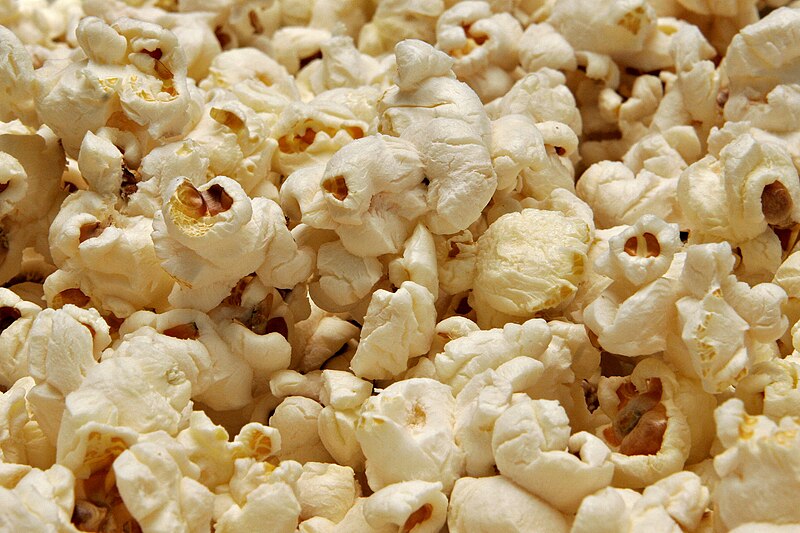
Popcorn or popping corn is a type of maize which puffs up when it is heated in oil or by dry heat. Special varieties of corn are grown to give improved popping yield. Some wild types will pop, but the cultivated strain is Zea mays L. subsp. mays (Everta Group), which is a special kind of flint corn. Popcorn was first developed by pre-Columbian Native Americans thousands of years ago. In 1948, popcorn ears dating back 5,600-years were discovered in bat caves in New Mexico....
How popcorn pops
As with all cereal grains, each kernel of popcorn contains a certain amount of moisture in its starchy endosperm. Unlike most other grains, the outer hull, or pericarp, of the popcorn kernel is thick and impervious to moisture.
As the kernel is heated past the boiling point, water in the kernel begins to turn to steam, generating an internal pressure of about 9 ATM. In kernels of other grains (and in damaged kernels of popcorn), this steam escapes as fast as it forms, but in the tightly sealed popcorn kernel, the steam is held tight by the pericarp and the pressure starts to build until the pericarp suddenly ruptures, causing a small explosion. The force of the explosion turns the kernel inside out. More importantly, because the moisture is evenly distributed throughout the starchy endosperm, the sudden expansion turns the endosperm into an airy foam which gives popcorn its unique texture.
Two explanations exist for kernels which do not pop, known in the popcorn industry as "old maids," after being exposed to high temperatures. The first is that unpopped kernels do not have enough moisture to create enough steam for an explosion. The second explanation, according to research led by Dr. Bruce Hamaker of Purdue University, is that the unpopped kernel may have a leaky hull.
[More....]

No comments:
Post a Comment